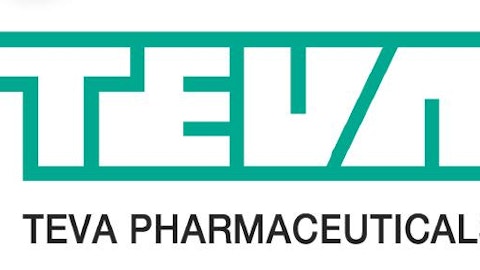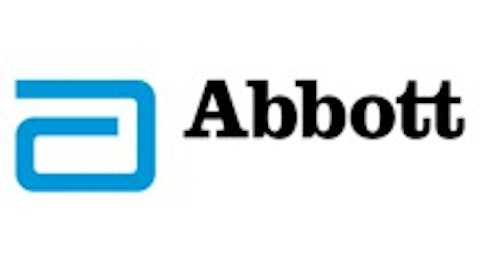Suppose we filled a jar with slips of paper with the names of biotech companies that have been around for at least 10 years and with a market cap of at $500 million or more written on them. The chances are quite good that if we pulled a random slip of paper out of that jar, the selected biotech’s stock performed reasonably well over the last decade. Of course, the concept of survival of the fittest plays a big factor.
Not every biotech we picked would be a winner, though. Even with an incredible run in recent years for biotech stocks in general, several biotech stocks have lagged well behind their peers. Here are three of the worst performing biotech stocks of the last decade.
1. Lexicon Pharmaceuticals, Inc. (NASDAQ:LXRX)
Lexicon Pharmaceuticals, Inc. (NASDAQ:LXRX) experienced its heyday in the first few years of the 21st century, but it’s pretty much been downhill since then. Shares of the biotech have dropped more than 60% in the past 10 years.

For much of the last decade, Lexicon Pharmaceuticals, Inc. (NASDAQ:LXRX) wouldn’t have met our $500 million market cap threshold. That changed in 2010 as investors began to see potential in the company’s pipeline, particularly with its lead drug candidate telostristat etiprate. The experimental drug received orphan status in the U.S. and Europe as a treatment for the rare disease carcinoid syndrome. It also obtained fast-track status in the U.S. that allows an expedited review process.
Lexicon’s hopes of improving upon its dismal performance from the last decade depend on telostristat etiprate and other drugs in its pipeline, including diabetes drug LX4211 and irritable bowel syndrome drug LX1033. Shares are up 11% year-to-date as these drugs advance in clinical trials, but Lexicon still has a long way to go to make up for the last 10 years.
2. Sequenom, Inc. (NASDAQ:SQNM)
Sequenom, Inc. (NASDAQ:SQNM) and Lexicon have similar stories in one respect. Sequenom also started off roaring in 2000 only to fizzle out in subsequent years. Over the last decade, the genetic analysis company has seen shares decline by 54%.
There were bright spots during those years, though. In part of 2008 and 2009, Sequenom traded at levels four times higher than the current share price. The bottom fell out of the stock shortly afterwards. First, Sequenom failed in its hostile takeover attempt of rival EXACT Sciences Corporation (NASDAQ:EXAS). A few months later, the company disclosed mishandling of test data for prenatal diagnostics studies. Sequenom’s stock still hasn’t recovered.
Now, investors interested in Sequenom focus on the growth prospects for the company’s MaterniT21 PLUS laboratory-developed test for Down syndrome. Sequenom reported solid numbers for the test in the first quarter of 2013. Many eagerly await the second-quarter results to see if Sequenom can regain momentum.
3. Dendreon Corporation (NASDAQ:DNDN)
If the 10-year period we were looking at ended in 2011, Dendreon Corporation (NASDAQ:DNDN) would come out looking really good. For the last decade, though, that’s not the case at all. Shares slumped 26% over the past 10 years.
The good, the bad, and the ugly for Dendreon all tie back to Provenge, the company’s prostate cancer drug. Back in 2010, one analyst predicted peak annual sales for Provenge of up to $4 billion. That kind of forecast can pump air beneath a biotech stock’s wings (and did so for Dendreon). Unfortunately, analysts’ forecasts can be dead wrong.
As it turned out, physicians were reluctant to prescribe Provenge primarily because they weren’t confident that payers would cover the expensive drug. Sales got off to a slow start and didn’t ramp up to expected levels even as more time went by. Dendreon’s stock went into a free fall.
Long-suffering shareholders see hope now that the Committee for Medicinal Products for Human Use, or CHMP, has recommended that Provenge be approved for sale in Europe. However, Dendreon faces stiff competition in marketing Provenge against Medivation Inc (NASDAQ:MDVN)‘s Xtandi and Johnson & Johnson (NYSE:JNJ)‘s Zytiga. Analysts expect both drugs to eventually hit annual sales of around $2 billion. Only time will tell if these targets are right — and if Dendreon can mount a comeback.
The decade ahead
Could the next 10 years be better than the last decade for these three biotechs? Sure. However, the prospects vary for each company.
I think Lexicon’s pipeline and partnerships with big players like Merck & Co., Inc. (NYSE:MRK) — and its horrible performance over the past several years — make it the most likely to improve. It wouldn’t be too surprising if Lexicon or Sequenom caught the eye of a larger company looking to make an acquisition. Dendreon has a formidable challenge, though. I’m more pessimistic about its chances, but anything is possible.
The article The Worst-Performing Biotech Stocks of the Last Decade originally appeared on Fool.com and is written by Keith Speights.
Fool contributor Keith Speights has no position in any stocks mentioned. The Motley Fool owns shares of Dendreon.
Copyright © 1995 – 2013 The Motley Fool, LLC. All rights reserved. The Motley Fool has a disclosure policy.





